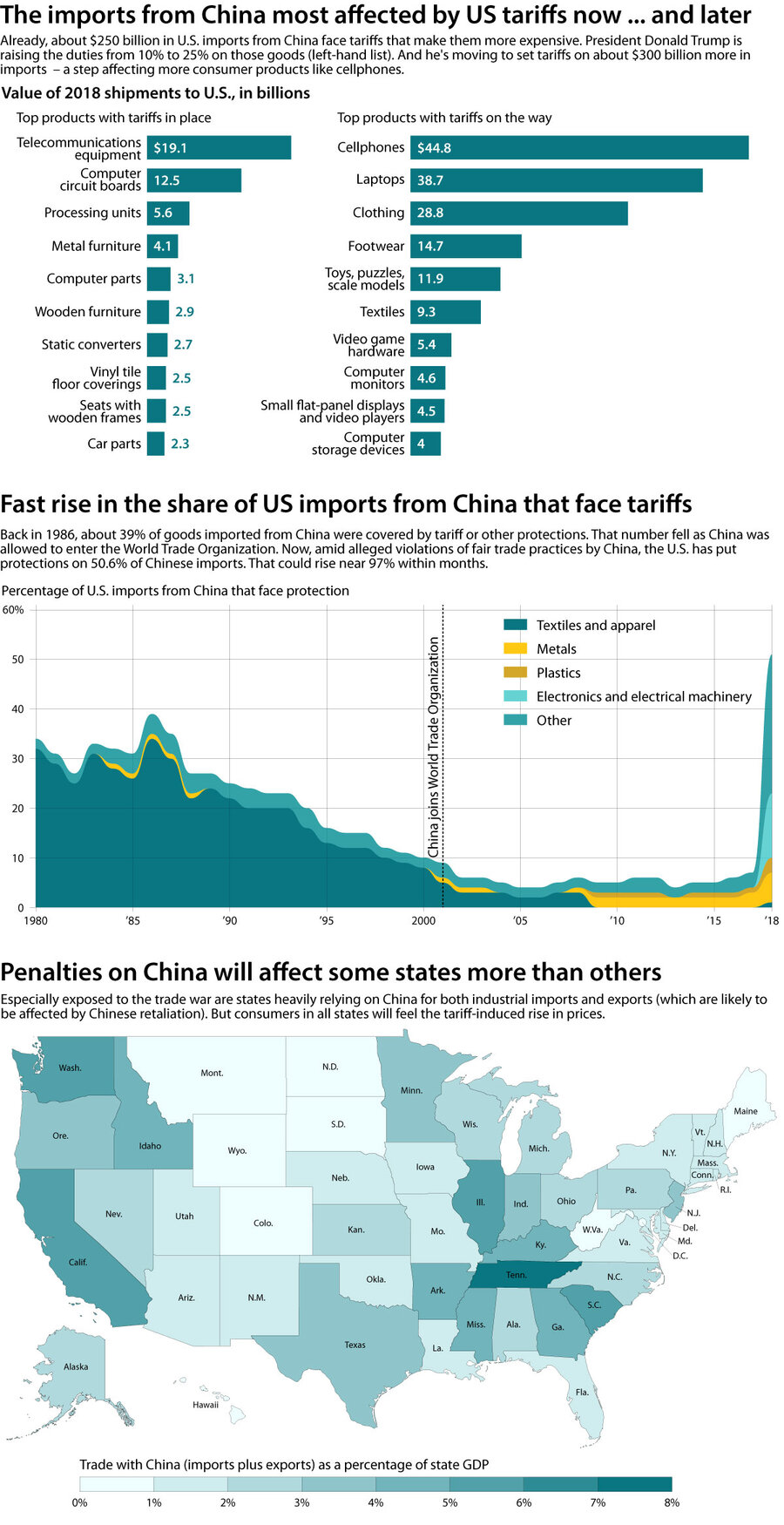As US-China trade war ramps up, how will it affect you?
Loading...
| Washington
American trade complaints against China aren’t new, but tensions over them could rattle the world economy as never before. President Donald Trump last week moved to jack up U.S. tariffs on Chinese imports, complaining that President Xi Jinping had backtracked on Beijing’s pledges to address things like corporate subsidies and intellectual property theft. China is retaliating with penalties of its own.
Cutting a deal would make economic sense for both sides, experts say. Now that feels miles of negotiation away. The average U.S. tariff on Chinese imports will now be 18%, up from 3% in 2017, according to the Peterson Institute for International Economics. By July that level could be 28% under U.S. plans to include things like cellphones, computers, toys, and shoes in the penalties.
“Pain is already being felt” by consumers and manufacturers in both nations, says trade expert Jacqueline Varas at the conservative American Action Forum in Washington. “Businesses are reporting a hard time finding materials; prices are being raised.” She sees valid trade concerns to address but argues the U.S. should try other channels that do less damage than tariffs to the global economy.
Fung Business Intelligence and Bloomberg (drawing on US International Trade Commission data); Peterson Institute for International Economics; U.S. Census and Bureau of Economic Analysis
Why We Wrote This
Most nations rightly view trade as an important route to greater prosperity and security. What happens when trust breaks down between the two largest trading economies?







